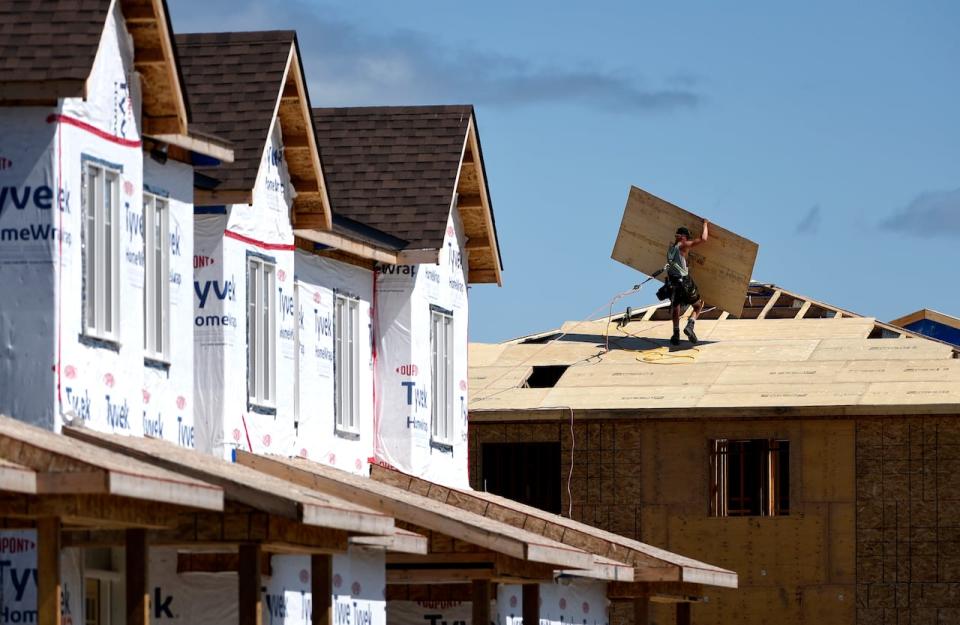Housing start numbers weak in province, worse in Ottawa

Ottawa builders are off to a slow start breaking ground on new homes this year, according to new data from the Canada Mortgage and Housing Corporation (CMHC).
There were 331 housing starts within the City of Ottawa last month, compared to 908 in April of last year — a drop of 64 per cent. In urban areas of Ontario as a whole, the downturn was 37 per cent over that period.
For the Ottawa census metropolitan area, which groups the city with surrounding communities like Carleton Place, Ont., and Russell, Ont., the drop was 58 per cent.
CMHC economist Francis Cortellino said a key factor is persistently high interest rates, which make mortgages more expensive for home buyers.
"At the same time, for rental structures, financing costs for builders are quite important at the moment," he said. "It's difficult to have a project that would be financially viable, so this is why starts are so low in Ottawa right now."
The April downturn follows disappointing numbers from March, when housing starts fell 53 per cent in the metropolitan area relative to the same month last year. February saw a more modest drop.
Mayor Mark Sutcliffe said he is not yet worried by the data and remains optimistic Ottawa can meet its housing targets.
"Month to month and year to year there might be some ups and downs in the numbers; some of that may just be timing of when new homes were initiated," he said. "But overall, I think we're headed in the right direction."
Jason Burggraaf, CEO of the Greater Ottawa Home Builders' Association, took a similar view of the situation. If the same trends persist for several months more, he might get worried.
For now, he's chalking it up to "volatility" in the data as large apartment projects make up a bigger share of the market. Their timing can move the needle by hundreds of units at a time.
"You'll see big drops and you'll see big booms," he said.
Like Cortellino, Burggraaf sees interest rates as the primary challenge for home builders. A few percentage points can scuttle an otherwise viable project.
"You're trying to finance hundreds of millions of dollars to build a building right now, so that makes a big difference," he said.
Apartment projects main driver for weak numbers
Last month's downturn was driven by multi-unit apartment buildings.
Last April, there were 617 apartment unit starts in the City of Ottawa, while there were just 96 this April. That's a decrease of 84 per cent.
Single-family home starts were actually slightly up over the same period, but Cortellino noted that they were already at a low level last year. He explained that individual home buyers often react more quickly to a changing financial environment, compared to larger builders.
He expects overall starts to recover in the latter half of this year, and even more into 2025.
There are signs the Bank of Canada may begin loosening up its policy, but Burggraaf said that could take more than a year to work its way through the system and spur more multi-unit construction.

Jason Burggraaf, CEO of the Greater Ottawa Homebuilders' Association, says meeting the city's housing targets might be tough in the next couple of years, but should get easier. (Jean Delisle/CBC)
The provincial government has set a target of 151,000 new homes for Ottawa by 2031, though the city is assessed on its progress year by year and could lose funding if it falls short.
Burggraaf said meeting those targets could be a "reach" over the next couple years, though he feels more confident that Ottawa will get there over the long term.
"I think the overall trend is positive," he said.

